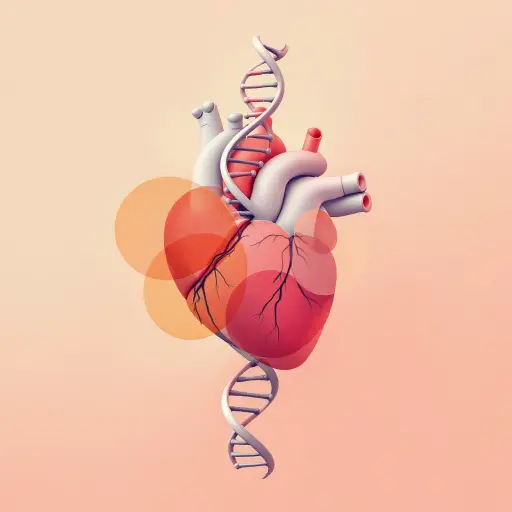Scylex Lab
23-Oct-2024
Understanding the Genetic and Environmental Factors Impacting Heart Health
Heart health seems to be impacted by nearly everything! Diet, exercise, lifestyle, environment, smoking, stress, the list goes on. Surprisingly, an often overlooked component of heart health is looking at your genetic influence.
Certain genetic variations, called single nucleotide polymorphisms (SNPs), have been identified to affect the risk of developing cardiovascular disease. Understanding these genetic markers can help personalize heart disease prevention and treatment strategies.
Cholesterol and the PCSK9 Gene
Elevated levels of cholesterol, mainly low-density lipoprotein (LDL) cholesterol or “bad” cholesterol, may increase the risk of plaque buildup in arteries. This may then lead to atherosclerosis and an increased likelihood of heart attacks and strokes. Managing cholesterol levels is essential for overall health and longevity.
Researchers have identified the PCSK9 gene as playing a critical role in managing cholesterol. Variants in the PCSK9 gene have been found to lead to elevated levels of (LDL) cholesterol, thereby increasing the risk of heart disease.
Knowing your PCSK9 gene variants can help identify your risk factors for elevated cholesterol and help you choose the best options for cholesterol-lowering treatments.
Cardiovascular Inflammation and the IL-18 Gene
Inflammation is another influencer of cardiovascular disease, as it can damage blood vessels and lead to the development of arterial plaques. The IL-18 gene is involved in the body's inflammatory response. SNPs in the IL-18 gene can lead to increased production of pro-inflammatory cytokines, which contribute to chronic inflammation in the cardiovascular system.
Monitoring and managing inflammation levels through diet, exercise, anti-inflammatory supplements, and medications can be crucial for individuals with IL-18 variants. .
Blood Clotting and the VKORC1 Gene
Blood clotting is a vital process that relies on vitamin K to help create the proteins that do the work of blood clotting, stopping wounds from continuously bleeding. On the flip side, too much blood clotting can lead to life-threatening conditions like deep vein thrombosis (DVT) or strokes.
The VKORC1 gene is involved in vitamin K metabolism including the conversion of vitamin K into a form that helps activate blood clotting proteins. Variants in this gene can affect how well a person metabolizes vitamin K, this impacts their their response to anticoagulants like warfarin. Patients with VKORC1 variants may require different dosing of anticoagulants to prevent blood clots while also avoiding excessive bleeding.
Oxidative Stress and the SOD2 Gene
Oxidative stress is linked to inflammation and contributing to the development of cardiovascular disease. The SOD2 gene, which encodes an enzyme called superoxide dismutase, plays a role in protecting cells from oxidative damage. The SOD2 gene works to neutralize free radicals that can be harmful to the body.
Variants in the SOD2 gene can reduce the efficiency of this enzyme, leading to increased oxidative stress and a higher risk for cardiovascular disease. Antioxidant-rich diets, antioxidant supplements, as well as anti-inflammatory supplements and medications may be especially beneficial for individuals with SOD2 variants to help mitigate their elevated risk.
Conclusion
Understanding the impact of genetic factors like SNPs on heart health can lead to more effective prevention and treatment strategies. Genes such as PCSK9, IL-18, VKORC1, and SOD2 are examples of how genetic variations can influence cardiovascular health, cholesterol levels, inflammation, blood clotting, and oxidative stress.
Considering genetic predispositions, diet, exercise, lifestyle, and environmental factors, individuals can take proactive steps to maintain their heart health. Identifying genetic variants leads to personalized diet and lifestyle recommendations and medical interventions tailored to each person’s unique genetic makeup.


